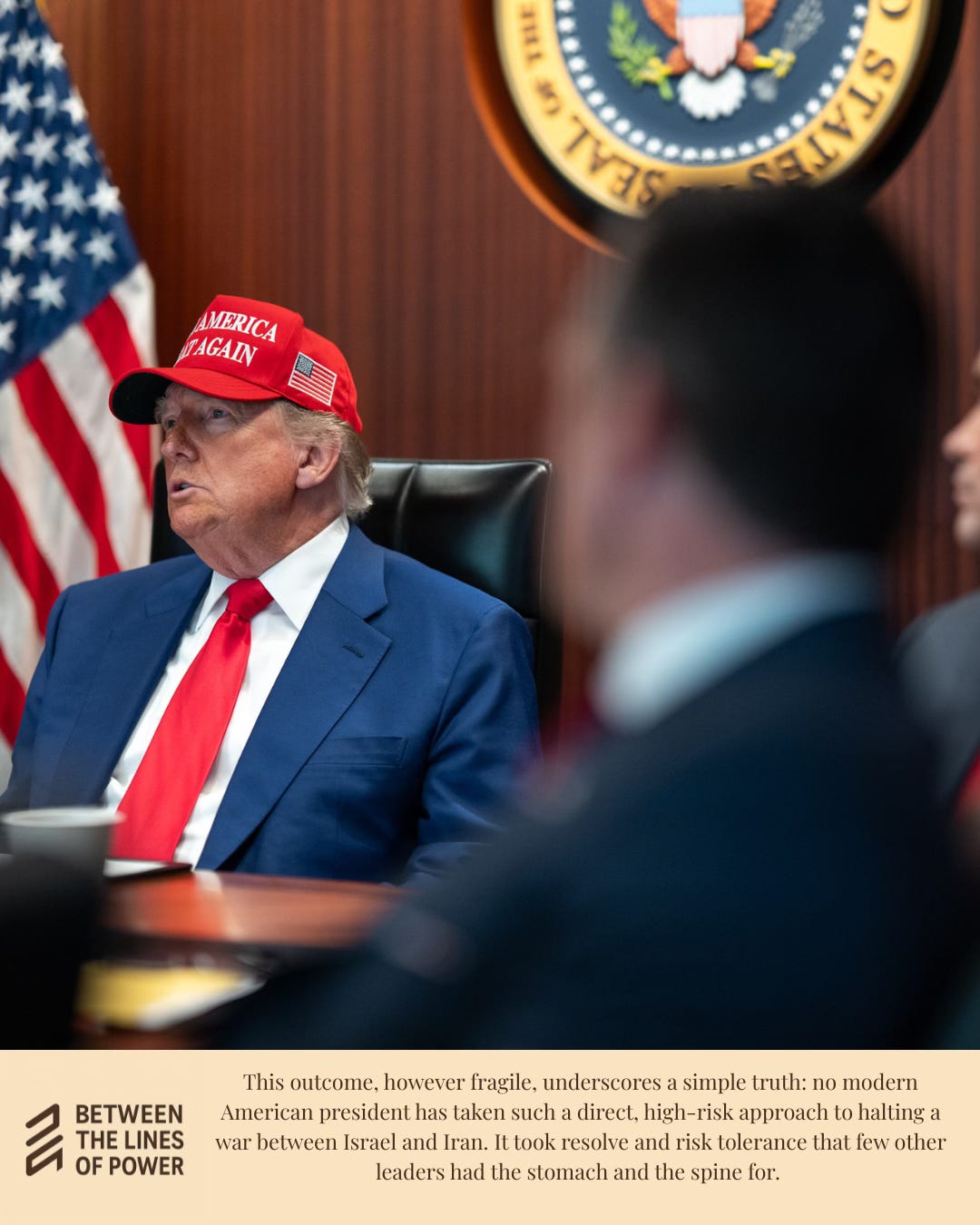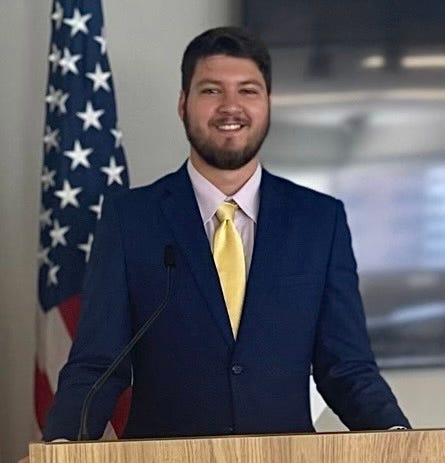The 13-Day War: How Trump Brought Israel and Iran to a Standstill
Precision strikes, diplomatic pressure, and the reassertion of U.S. deterrence
In a dramatic and fast-moving sequence of events, former President Donald Trump announced a "Complete and Total CEASEFIRE" between Israel and Iran via Truth Social. The post declared the end of what he called "THE 12 DAY WAR," (which will more than likely be called the 13-day war moving forward), with a phased ceasefire to be implemented over 24 hours. Though unconventional in form, the announcement followed days of aggressive military escalation and rapid diplomatic maneuvering that may have prevented a broader regional war.
The conflict began nearly two weeks ago when Israel launched "Operation Rising Lion," an air campaign that targeted Iranian nuclear and military infrastructure. Iran retaliated with missile and drone attacks, further escalating tensions. Faced with the prospect of a prolonged and unpredictable conflict, the United States intervened with a targeted strike on Iranian nuclear facilities.
The U.S. operation, reportedly named "Midnight Hammer," involved B-2 Spirit bombers delivering Massive Ordnance Penetrators (bunker busters) against fortified nuclear sites such as Fordow and Natanz. The strike sent a clear message: the United States would not sit idly by while the region spiraled into war.
Iran’s response was muted. It launched missiles at the Al Udeid Air Base in Qatar, but not only were there no casualties, the United States had reportedly been warned in advance. The message from Tehran was easy to comprehend - they wanted to avoid further escalation. This is where the gamble that Trump took actually paid off.
Within hours, Trump declared that Iran and Israel had agreed to a ceasefire, with each side beginning a 12-hour truce, culminating in a full ceasefire agreement that brought the 12-day war to a close. While the announcement raised eyebrows—both for its source and its simplicity—the basic framework appeared to take hold.
The question on my mind (and many other analysts minds) at the time was whether the ceasefire would last. This morning, Trump returned to Truth Social, this time frustrated, blaming both sides for violating the ceasefire and claiming they “don’t know what the fuck they’re doing.” This was the real test. I argued in my previous article on the Israel-Iran war that the United States should do exactly what it did - use the bunker-buster bomb to destroy Iran's last true bargaining chip, establish deterrence, and immediately pivot to diplomacy. But I also kept in mind the messy history of the United States forever wars in the Middle East, and argued that the Trump administration would have to make peace with the risk that we might get ensnared into another geopolitical/military quagmire. Luckily, violence briefly resumed before subsiding again.
Despite the hurled expletives, Israeli Prime Minister Benjamin Netanyahu’s office issued a statement declaring that all of Israel’s war objectives had been met. According to Israeli journalist Amit Segal, the government now considers the operation a strategic success. Netanyahu and Trump reportedly spoke by phone, with Trump expressing appreciation for Israel’s conduct and confidence in the stability of the truce. (I don't doubt that there were probably some more f-bombs thrown in during that phone call).
This outcome, however fragile, underscores a simple truth: no modern American president has taken such a direct, high-risk approach to halting a war between Israel and Iran. It took resolve and risk tolerance that few other leaders had the stomach and the spine for. Trump’s mix of force and improvisation compelled both sides to pause, if only temporarily. The establishment of American deterrence was so clear and credible that even Russia, which ordinarily a close ally of Tehran, condemned that United States and Israel, but stopped short of providing any military support, and in fact offered to be a mediator in the conflict.
Of course, the situation remains precarious. Regional militias like Hezbollah and the Houthis have not disarmed, and Iran’s long-term nuclear ambitions are far from resolved. There’s also the danger of sleeper cells or lone actors exploiting the instability. But for now, open conflict has stopped.
Whether this moment holds or spirals into another cycle of violence is still unclear. But the facts on the ground are this: a war that could have dragged in the entire region lasted less than two weeks, ended with both nations claiming success, and was brokered through the blunt, disruptive diplomacy of Donald J. Trump.
I would not say that this is true peace, but at least it’s a pause, and perhaps a preview of what American leverage still looks like when it’s fully and unapologetically used. Any future American president should be keen to take notes. This is the Trump doctrine in action.
This article is part of the Deep Dive section, where we unpack the geopolitics behind the headlines.
About the Author: Marco Rodriguez is a political analyst and writer focusing on U.S. foreign policy, security, and global power dynamics. His work blends deep historical insight with sharp contemporary analysis. He is the creator of this Substack, where he explores the intersection of diplomacy, conflict, and leadership in the 21st century.






